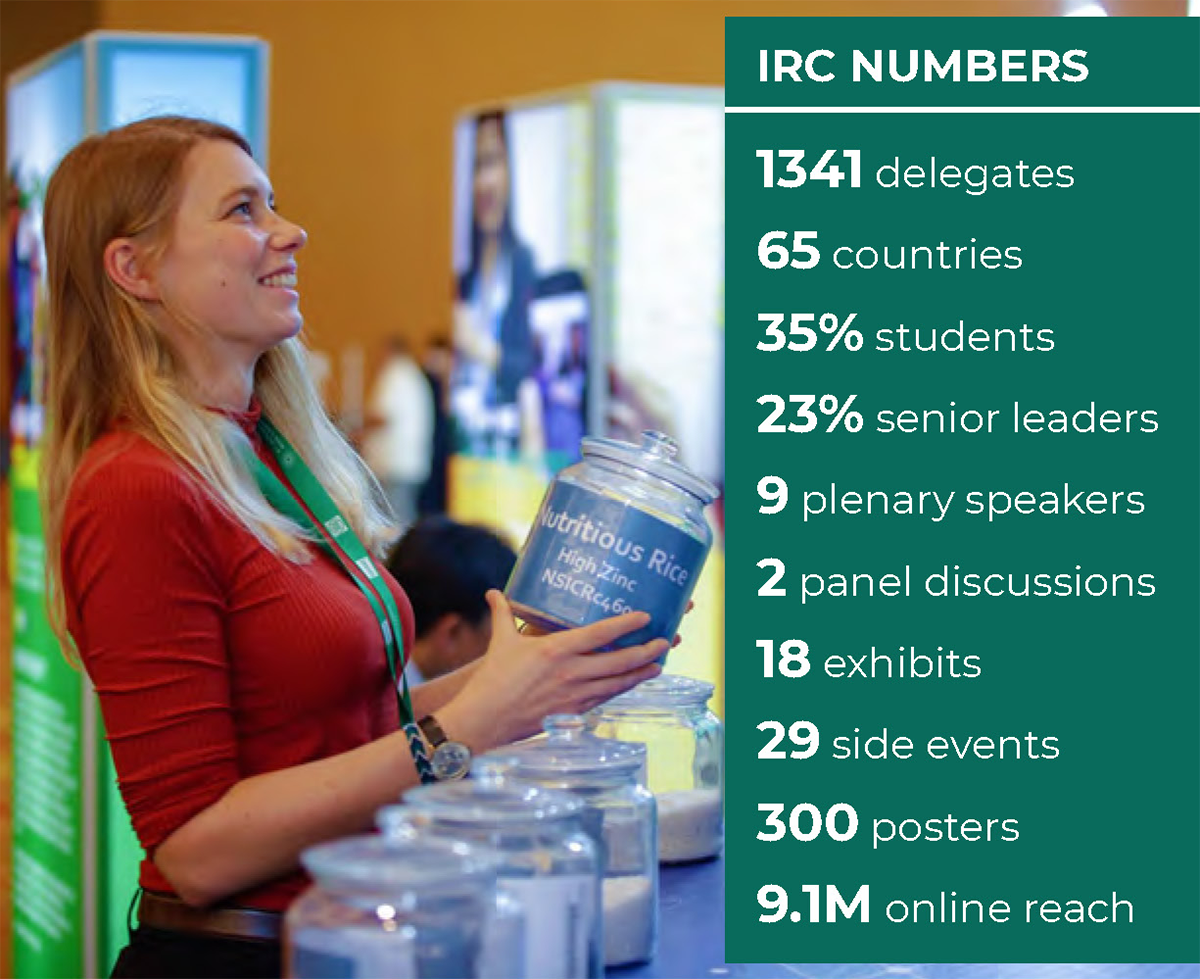
Held on 15-17 October in Singapore, the 5th International Rice Congress (IRC2018) was the biggest gathering of thought leaders, scientists, policymakers, agriculture experts, and technology providers from the world of rice research and production.
Rice is the world’s most important food crop, providing sustenance and nutrition for billions of people, as well as income and livelihood for hundreds of millions of farming families. Burgeoning factors such as climate change, rising populations, urbanization, and competition for natural resources are making it more and more difficult to keep up with ever-increasing global demand, creating a significant challenge for food security.

Organized by the IRRI, IRC2018 brought together over 1,300 delegates from 65 countries to meet, share, and learn about the latest research and innovations, cutting-edge technologies, and ideas and policies shaping the future of this critical food staple.
IRC featured major events designed to stimulate the exchange of ideas, partnerships, and the exploration of new innovations. IRC hosted the 30th International Rice Research Conference, the 8th Rice Genetics Symposium, as well as various plenaries from thought leaders, high-level panel discussions, dozens of side events and exhibits, and over 300 scientific posters from contributors.

FAO Assistant Director General Dr. Kundhavi Kadiresan, Singapore Minister of National Development Lawrence Wong, IRRI Director General Matthew Morell, and IFAD President Gilbert Houngbo renewed their respective commitment to achieve Zero Hunger by 2030.

Young entrepreneurs Vannie Koay, Lincoln Lee, Loh Rachel, and Kisum Chan of the IRRI-supported social enterprise and 2018 Hult Prize winner Rice Inc., attended the congress as special guests.

IRRI Chief of Staff Peter Brothers presents an Outstanding Alumni Award to Dr. Muhamad Abdul Hamid Miah from Bangladesh. Seven scientists from around the world were presented awards during IRC, which include the Young Scientist Award and the Senadhira Rice Research Award.

Exceptional rice scientists from all over the world were recognized with the awarding of the Young Scientist Award, the Senadhira Rice Research Award, and the Outstanding IRRI Alumni Award.

IFAD President Gilbert Houngbo in his keynote stressed that to eliminate hunger and poverty, there must be inclusive and sustainable investment in rural transformation.

Dr. Qifa Zhang shared how genomic research in China is advancing Green Super Rice development to create more productive, sustainable, and environment-friendly rice systems.

Oxfam global agricultural adviser Le Nguyet Minh discussed how developing sustainable rice systems must be inclusive of women, who comprise the majority of smallholder farmers.

Amazon VP and CTO Werner Vogels shared how cloud computing and blockchain technology can help rice scientists and farmers.

